Water Resources - Research Topics
Last Updated:
- Agricultural Crop Classification
- Bridge hydraulics
- Climate change impact studies
- Crop Yield Prediction
- Data assimilation and analysis
- Dam safety
- Decision making, optimization, fuzzy set theory
- Design of hydraulic structures
- Drought Analysis and Risk Assessment
- GIS/RS modeling and application in hydrology and water resources
- Hydrometeorology/hydroclimatology
- Hydrosystems reliability and risk assessment
- Land Cover Classification
- Modeling for numerical weather prediction and climate prediction
- Operation of water distribution networks
- Renewable energy (Hydropower, wind, and solar)
- River engineering and river basin management
- Seasonal Weather Forecasts
- Short-term Weather Predictions
- Snow hydrology
- Water resources management
Developing optimum operational strategies for pumped-storage hydropower system.
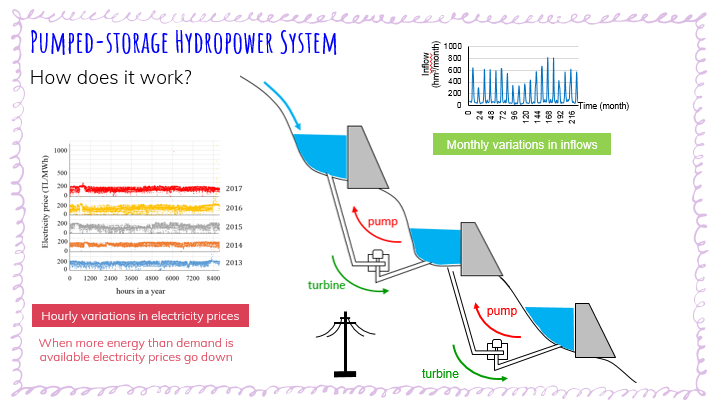
While temperature increases significantly snowmelt-runoff peak time (Center time) shifts earlier.
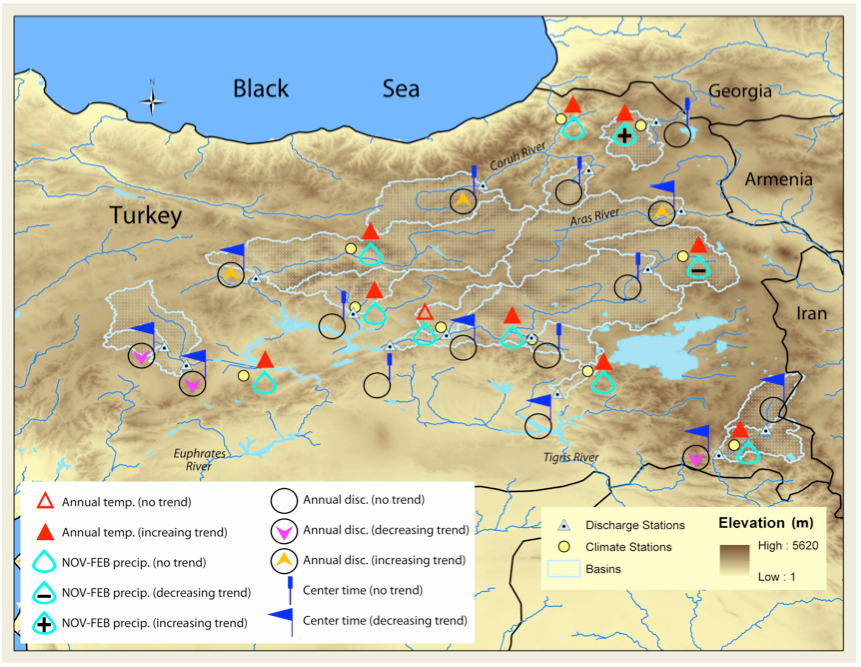
Increases in 30-yr maximum and minimum temperature with non-stationarity obtained by ensemble CORDEX climate models at the end of the century.
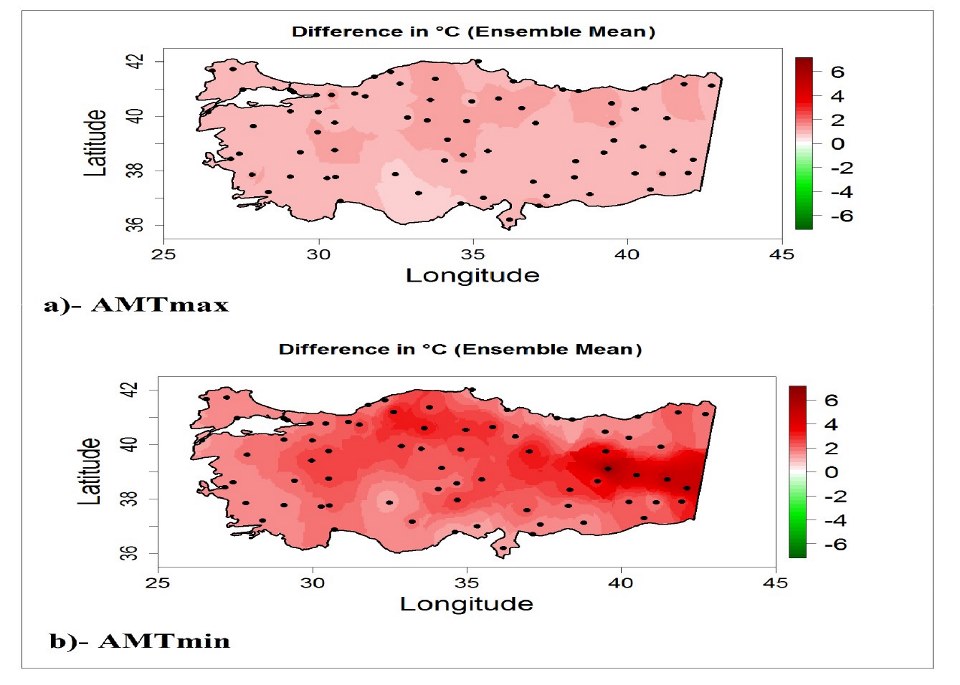
Satellite Snow Products for Hydrology: http://hsaf.meteoam.it
Operational snow products are produced on daily basis
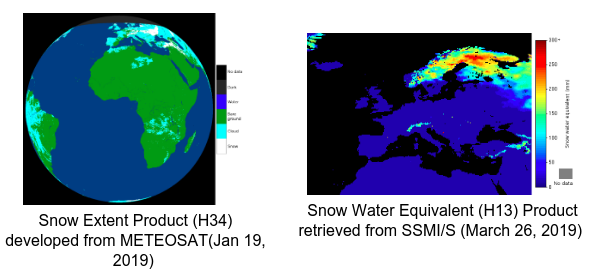
Non-existence or scarcity of ground observations of hydrometeorological variables in space and/or time limits the decision making processes or applications that are heavily dependent on such datasets. We can help these decision making processes by providing the cutting-edge remote sensing-based investigations supported by advanced data analysis techniques and machine learning methodologies.
Measuring snow depth, snow water equivalent at the field :
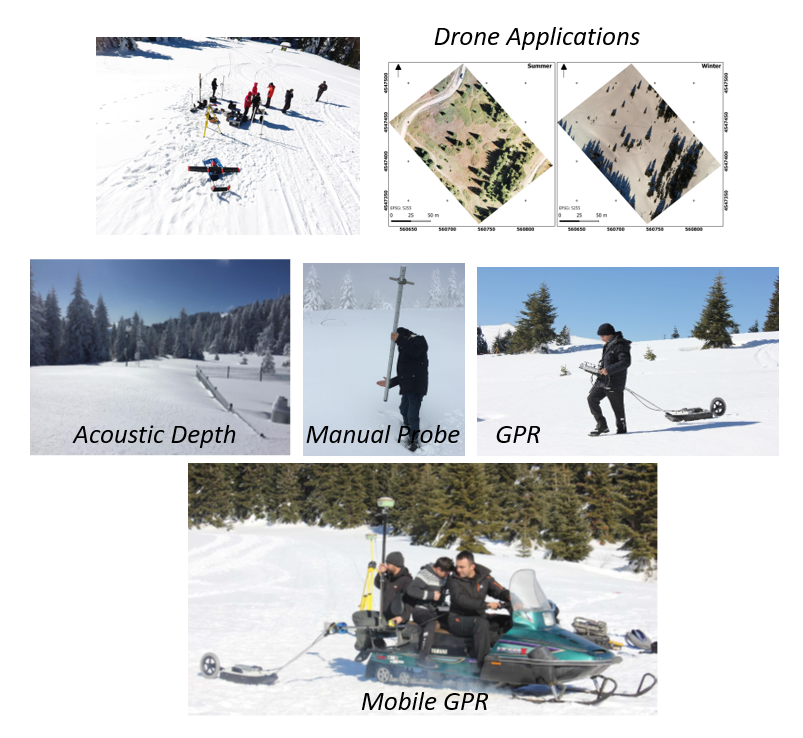
Snow Analyses :

Spatial distribution of snow depth, snow water equivalent and snow pack obtained from GPR analyses
Accurate predictions of hydrometeorological variables such as precipitation, temperature, soil moisture, and runoff are essential in hazard early warning systems (e.g., floods, droughts, and heat-waves) and improved financial decision making systems (e.g., hydro-power, wind energy, and crop yield).
Use of High-resolution (3-km) WRF Model:
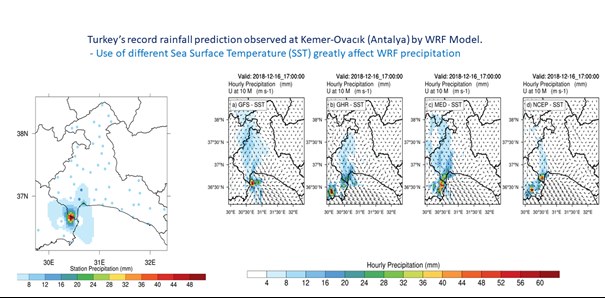
6. Data Analysis Supported By Machine Learning :
We can detect spatial and/or temporal signals existing in time series or spatially extensive datasets by utilizing various artificial intelligence and statistical techniques. The relevant information that is hidden in the big datasets can be mined at high precision.
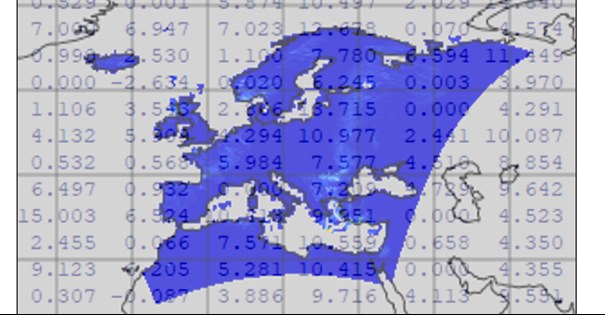
We can carry out site selection, optimization and prediction studies for hydropower, wind, and hybrid power systems by exploiting the hydrometeorological variables acquired from remote sensing observations, model simulations and relevant data.
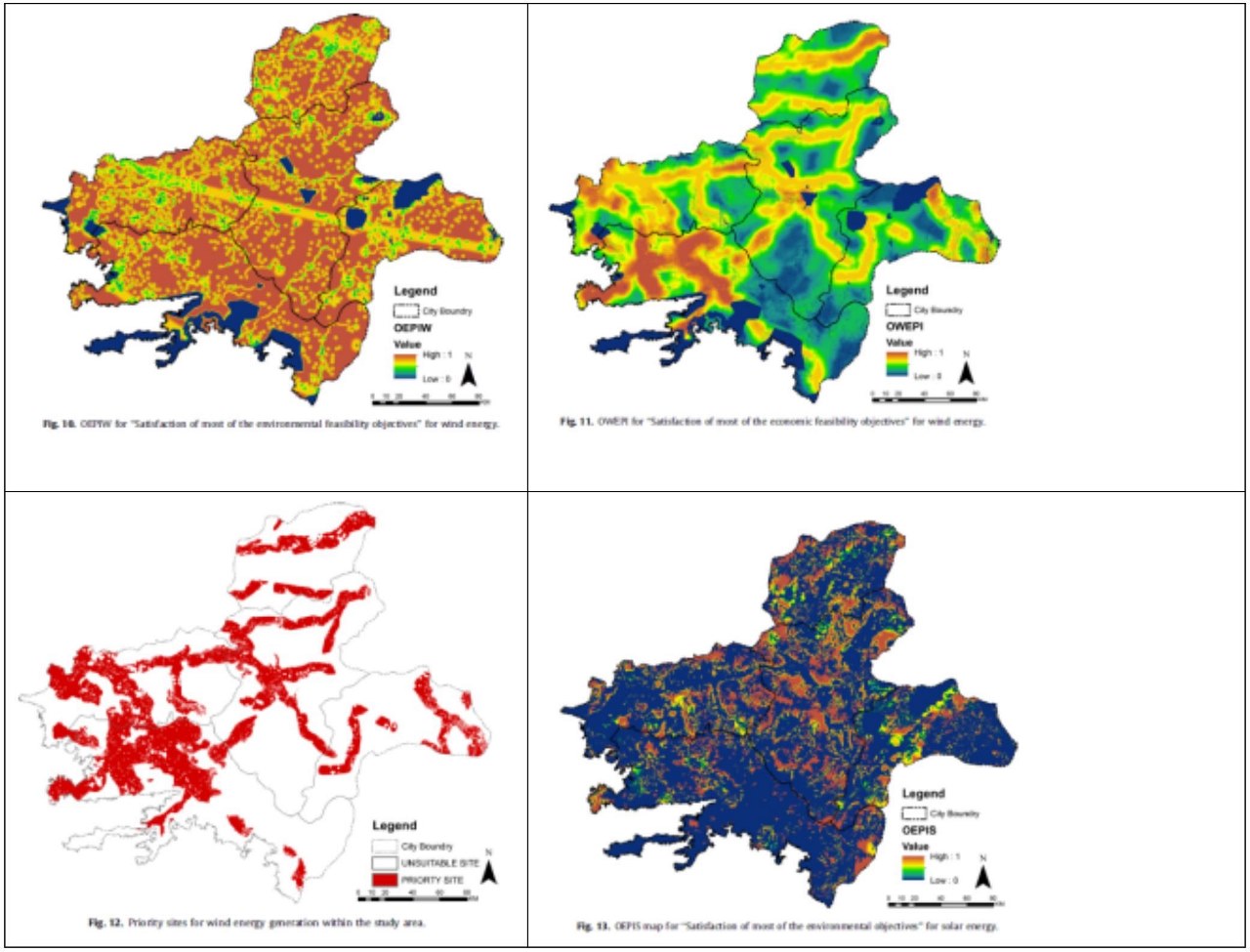
8. Design of Hydraulic Structures, Analyses of Hydrosystems, Safety Assessment
